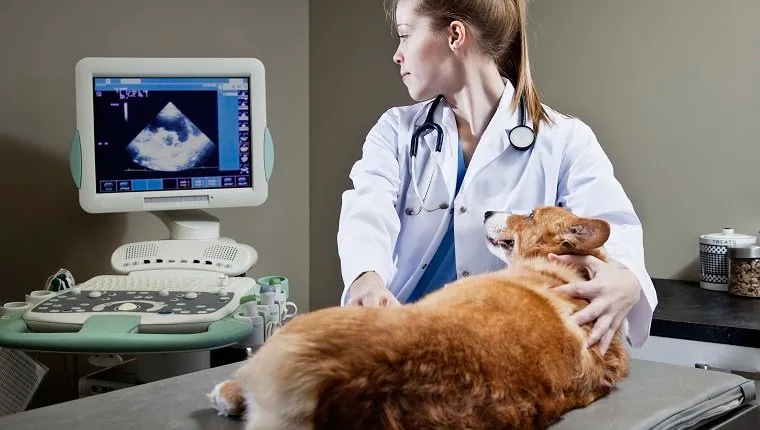Endocarditis in dogs is an infection or inflammation of the lining of the inner surface of the heart, known as the endothelium. Sometimes this condition is referred to as endocardiosis.
Usually it’s the result of a bacterial infection, although fungal infections may also cause the infection in dogs. Endocarditis is uncommon, which means vets sometimes overlook or misdiagnose it, and this is particularly dangerous because the condition is often fatal if it goes untreated.
Sometimes the condition is accompanied by myocarditis and pericarditis, creating further complications. Endocarditis can lead to blood clots, abnormal heart function, and eventually heart failure. While dogs may fight off the infection with treatment, the damage done to the heart is often irreversible.
If you see the signs of endocarditis in your dog, then you must consult your veterinarian for a proper diagnosis and treatment. The earlier treatment begins, the better. Here’s what you should know about the symptoms, causes, and treatments for endocarditis in dogs.
Symptoms Of Endocarditis In Dogs

The symptoms of endocarditis in dogs usually develop fairly quickly, as diseases that affect the function of the heart tend to affect the entire body. Often the signs of endocarditis are similar to the signs of left-sided congestive heart failure.
Here are several possible signs to watch out for in dogs:
- Coughing
- Breathing difficulty
- Exercise intolerance
- Weakness
- Fatigue
- Weight loss and anorexia
- Ascites (fluid in the abdomen)
- Fever
- Heart murmur
- Arrhythmia
- High blood pressure
- Collapse
Causes Of Endocarditis In Dogs

Endocarditis in dogs is usually caused by bacterial infection, which may begin elsewhere in the body and move to the heart through the bloodstream. Rickettsia, Bartonella, and fungal infections may rarely be the cause.
Sometimes surgical procedures, immunosuppressive medical treatments, and cancer can increase the risk of endocarditis.
The disease appears more often in older dogs and male dogs, and it can occur in any breed, though larger breeds are more at risk.
Dogs with weakened immune systems are more susceptible to infection. Any kind of pre-existing heart condition can also increase the risk that endocarditis will develop.
Treatments For Endocarditis In Dogs

There is a reasonable chance that treatment for endocarditis in dogs will lead to recovery if the condition is caught and treated early, though it’s highly fatal if treatment is delayed.
Treatment usually begins with a course of antibiotics to fight bacterial infection, and vets may also prescribe anti-arrhythmic drugs to treat heart beat abnormalities.
If the condition has progressed, then vets may prescribe drugs to treat congestive heart failure, as well. These include diuretics to reduce fluid buildup, vasodilators to loosen blood vessels, and enzyme inhibitors. At this stage, the damage is usually irreversible, and the prognosis is not good.
Prevention can go a long way. Bacteria often enters through the mouth, so proper oral care often helps ward off endocarditis and other infectious conditions. Regular veterinary teeth cleanings and at-home brushing are essential.
Dogs who suffer from other heart conditions, oral infections, or immunosuppressive conditions may need treatment with antibiotics before and after dental cleanings.
Take steps to keep your dog’s immune system healthy, and their overall ability to fight off infection will improve.
Do you make sure to keep your dog’s immune system in good shape to avoid conditions like endocarditis? Do you have any health tips for other dog lovers? Then let us know in the comments below!









